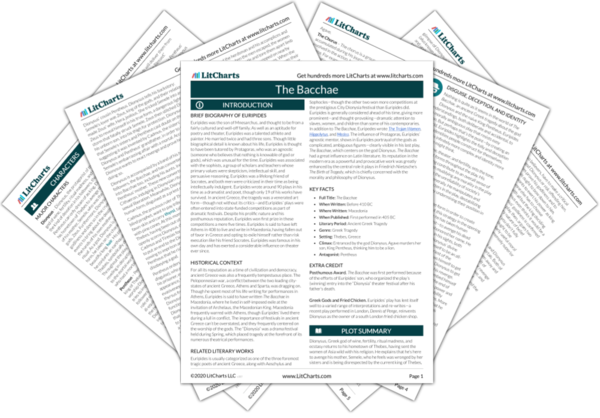Previous
The Bacchae
|
Previous
The Bacchae
|
The Chorus Character Analysis |
Next
Semele
|
Blessèd are those who know the mysteries of the god.
Blessèd are those who consecrate their lives to worship.
Blessèd are those who give themselves up to the dance,
to the mysteries, to purification on the holy mountain
where the dance and the mysteries take place.
CHORUS
Look: the stone lintels gape from their columns!
The Roaring One is pulling down the palace from inside!
DIONYSUS
Spark the lightning bolt!
Let the flames feed on the house of Pentheus!
The gods take many shapes,
accomplish many things beyond our expectations.
What we look for does not happen;
what we least expect is fashioned by the gods.
And that is what has happened here today.
